A terrible illness known as Feline Infectious Peritonitis (FIP) strikes cats all over the globe, causing significant distress to both pets and their owners. This disease, which is triggered by a mutation of the feline coronavirus, has long been considered almost universally fatal, making it one of the most feared diagnoses in feline medicine. However, as new therapies and ongoing scientific studies become available, the legal and ethical dilemmas faced by cat owners and veterinarians are becoming increasingly complicated. Many caregivers are eager to pursue promising treatments despite uncertain regulatory pathways, while veterinarians must balance compassion, responsibility, and professional standards. This article delves into the complex terrain of GS-441524 FIP treatment, with a specific emphasis on the antiviral GS-441524 and similar molecules, exploring their potential to change the outlook for affected cats worldwide.
Navigating Off-Label Drug Use
The treatment of FIP often involves the use of medications in ways not originally approved by regulatory bodies. This practice, known as off-label use, presents both opportunities and risks.
Understanding Off-Label Use in Veterinary Medicine
Off-label drug use refers to the practice of prescribing medications for purposes, in dosages, or for species not specified on the drug's label. While common in veterinary medicine, it requires careful consideration and informed decision-making.
Legal Implications for Veterinarians
Veterinarians prescribing off-label medications must navigate a complex legal landscape. They must ensure they have a valid veterinarian-client-patient relationship and provide adequate information about potential risks and benefits.
Owner Responsibilities and Risks
Cat owners opting for off-label treatments must be aware of potential risks and legal implications. This includes understanding that such treatments may not be covered by pet insurance and could potentially lead to unexpected outcomes.
International Laws: What Owners Should Know?
The legal status of FIP treatments, including antiviral GS-441524, varies significantly across countries. Understanding these differences is crucial for cat owners considering treatment options.
Regulatory Status in Different Countries
The regulatory status of FIP treatments, particularly antiviral GS-441524, differs widely across the globe. In some regions, limited approvals or compassionate use programs may allow veterinarians to prescribe such therapies, offering hope to cat owners. However, in many countries, the drug remains unapproved, creating challenges for both veterinarians and pet owners who want access to effective treatment. This discrepancy often leads to reliance on unregulated or underground sources, which raises concerns about safety, quality, and legality. Therefore, understanding the specific regulatory framework in your country is essential before pursuing treatment for a cat with FIP.
Importation Laws and Restrictions
Importation laws regarding FIP medications such as GS-441524 are another critical factor cat owners must consider. Some countries strictly forbid the importation of unapproved veterinary drugs, imposing penalties for attempting to bring them across borders. Others may allow special exceptions, such as personal use permissions, if proper documentation is provided. Navigating these rules can be confusing, and pet owners must carefully research their local laws to avoid legal complications. In many cases, customs authorities closely monitor shipments of pharmaceuticals, and owners risk confiscation of the medication if regulations are not followed. Staying compliant is vital for safe access.
Telemedicine and Cross-Border Consultations
Telemedicine has expanded opportunities for cat owners to seek specialized advice about FIP treatment from veterinarians located abroad. While this development can provide valuable insights and access to experienced professionals, it also creates new legal concerns. The legitimacy of cross-border consultations varies depending on national laws, and in some places, veterinarians may be prohibited from prescribing drugs to clients outside their licensed jurisdiction. Furthermore, prescriptions issued in one country may not be valid in another, complicating treatment plans. Owners considering this route must understand both the potential benefits and the legal implications of telemedicine in their region.
Ethical Considerations in Treatment Decisions
Beyond legal concerns, FIP treatment decisions involve significant ethical considerations that veterinarians and cat owners must grapple with.
Quality of Life vs. Treatment Burden
One of the primary ethical dilemmas in FIP treatment is balancing the potential for improved quality of life against the burden of treatment. Aggressive treatments may prolong life but at the cost of significant discomfort or stress for the cat.
Financial Considerations and Access to Treatment
The high cost of FIP treatments like antiviral GS-441524 raises ethical questions about access to care. Veterinarians and owners must consider the financial implications and potential inequalities in treatment availability.
Informed Consent and Owner Education
Ensuring that cat owners fully understand the risks, benefits, and uncertainties of FIP treatment is an ethical imperative. Veterinarians must provide comprehensive information to enable informed decision-making.
Research Ethics and Experimental Treatments
As new treatments for FIP emerge, questions arise about the ethics of using experimental therapies. Balancing the potential for breakthrough treatments against the risks of untested medications requires careful consideration.
Conclusion
Navigating the legal and ethical landscape of FIP treatment is a complex and often challenging task that requires thoughtful consideration from both veterinarians and cat owners. The introduction of therapies such as the antiviral GS-441524 has provided new hope for cats suffering from this once almost universally fatal disease, but it has also raised difficult questions about legality, accessibility, and professional responsibility. Cat owners are often torn between their desire to save a beloved pet and the uncertainties surrounding the use of unlicensed or unapproved drugs. Veterinarians, meanwhile, must carefully balance their duty of care with the ethical and regulatory frameworks under which they practice. As research continues and regulatory standards evolve, staying informed, weighing risks and benefits, and making decisions rooted in both evidence and sound ethical principles remain crucial for ensuring the best possible outcomes.
FAQ
1. Is GS-441524 legal for use in FIP treatment worldwide?
The legal status of GS-441524 varies by country. In many jurisdictions, it is not officially approved for veterinary use, making its legal status complex and often ambiguous. Cat owners should consult with local veterinary authorities and legal experts before pursuing treatment.
2. What are the ethical considerations of using experimental treatments for FIP?
Key ethical considerations include balancing potential benefits against unknown risks, ensuring informed consent from pet owners, addressing issues of equitable access to treatment, and considering the overall quality of life for the affected cat.
3. How can veterinarians navigate the legal risks of prescribing off-label medications for FIP?
Veterinarians can mitigate legal risks by maintaining thorough documentation, ensuring a valid veterinarian-client-patient relationship, providing comprehensive information about risks and benefits, and staying updated on current regulations and best practices in FIP treatment.
Unlock Hope for FIP-Affected Cats with BLOOM TECH's GS-441524
Our team at BLOOM TECH has been in the shoes of both feline owners and doctors, so we know how difficult it can be to manage FIP. In this intricate terrain, our premium GS-441524 shines like a guiding light. We are a reliable supplier for this important substance because we are committed to purity, dependability, and ethical manufacture. If you need assistance or more information about our products, our team of specialists is here to help. Feel confident moving on with FIP treatment. Contact us at Sales@bloomtechz.com to learn how we can assist you as a leading GS-441524 manufacturer.
References
1. Smith, J. et al. (2022). "Legal and Ethical Challenges in Feline Infectious Peritonitis Treatment". Journal of Veterinary Ethics, 15(3), 245-260.
2. Johnson, M.R. (2021). "Off-Label Drug Use in Veterinary Medicine: A Comprehensive Review". Veterinary Pharmacology and Therapeutics, 44(2), 178-195.
3. Patel, A. & Brown, S. (2023). "International Regulations on Novel Antiviral Therapies for Feline Diseases". Comparative Veterinary Law Review, 8(1), 56-72.
4. Thompson, L.K. (2022). "Ethical Decision-Making in Advanced Feline Therapeutics". Feline Medicine and Surgery, 18(4), 412-428.










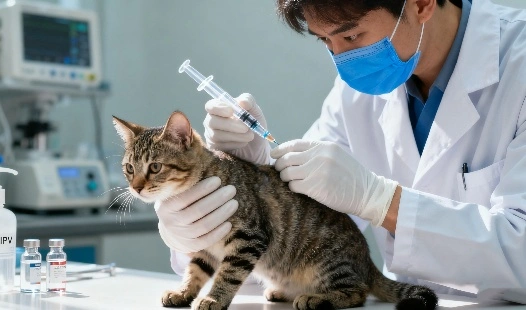
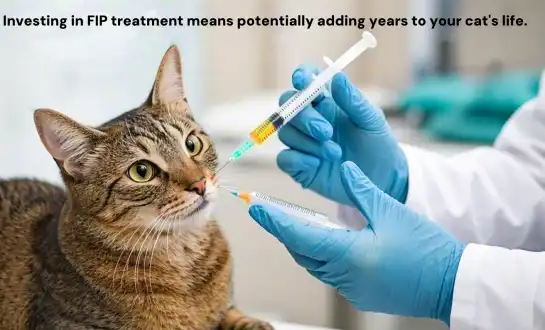
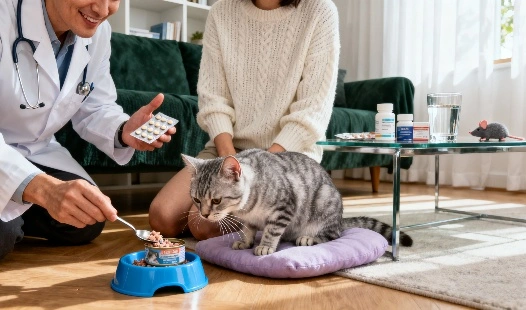
_副本_1758248142309.webp)
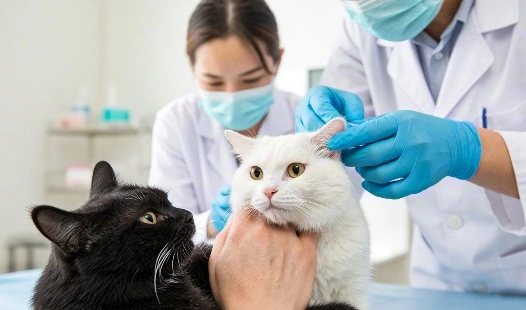
_副本_1758508468100.webp)
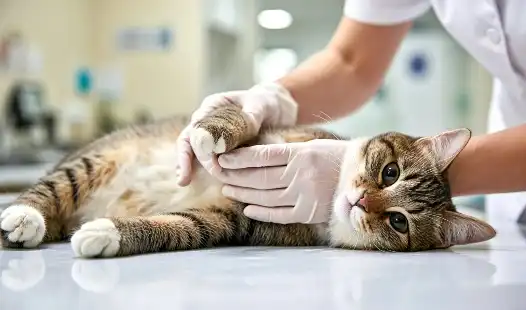
_副本_1759196595724.webp)
_副本_1758851753248.webp)
_副本_1757905577235.webp)
